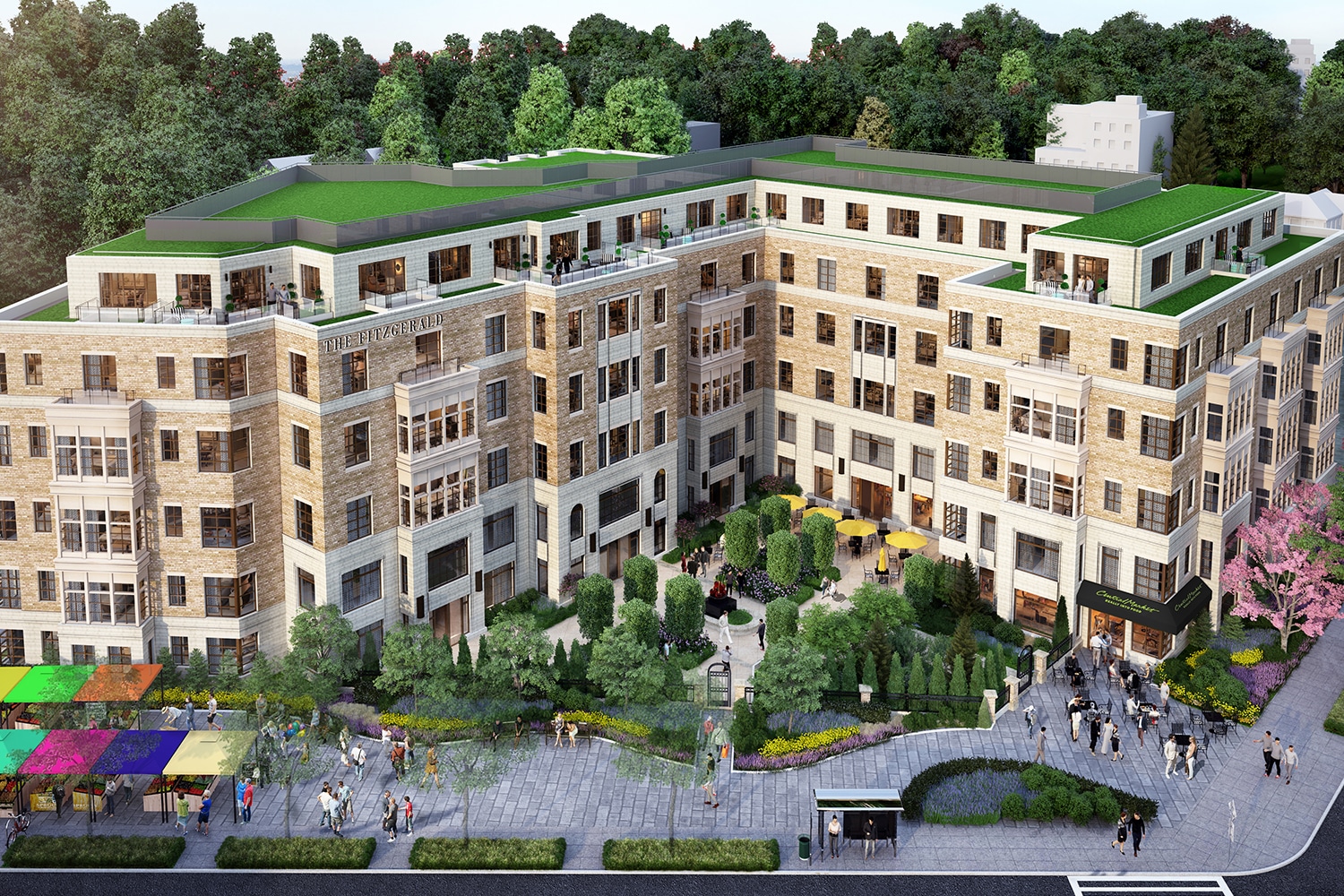Leni Preston’s life has been shaped by remarkable coincidences, many centered near the neighborhood of The Fitzgerald of Palisades. Born at Georgetown University Hospital and adopted soon after, she was raised just blocks from the Home for Unwed Mothers where her birth mother stayed while pregnant. Her birth father also lived in Georgetown for a time and, unbeknownst to her, future husband, Edmund, was living just blocks away and had attended the same school she did albeit some years earlier. They met through mutual friends and soon settled in Charlottesville. When Edmund earned his Ph.D. they returned to the Palisades to live in a house designed by Preston’s father before moving to Bethesda. As a proud Washington, DC native, living at The Fitzgerald feels like a return home. In fact, she often jokes she hasn’t traveled very far in life.
During her career and retirement Preston pursued two paths – both rooted in the championing of causes that preserve and improve our communities. Those include the disparate areas of historic preservation and equitable access to health care.
Preston’s passion for historic preservation was deeply influenced by her architect father, who helped save Lafayette Square’s historic buildings in the 1960s. As a child, she listened to community activists meeting in their living room to stop unwanted highways and bridges. These instilled, as if by osmosis, a lifelong commitment to the preservation of our shared history. Over her career, she guided strategic planning for historic sites, museums, and nonprofit organizations, including overseeing half a million annual visitors as the head guide at Thomas Jefferson’s Monticello. A full-circle moment came when she gave a tour to Jacqueline Kennedy Onassis, who was also a key figure in Lafayette Square’s preservation like Preston’s father. Preston also became the first curator of Tudor Place Historic House and Gardens in Georgetown, further cementing her impact on preserving Washington, D.C.’s rich history.
Though she intended to retire in 2006, Preston was drawn into activism, dedicating her post-professional life to healthcare reform. “When I started my work in health care reform, I knew nothing about health policy,” she admitted. “But I became knowledgeable and passionate about the subject.” One of her proudest moments as an advocate came when she rolled in on a knee scooter—just ten days after foot surgery—to testify before Maryland’s Health and Government Operations Committee about the state’s hospital system after her own negative healthcare experience. She felt compelled to speak because, as she put it, “Nothing moves legislators more than the lived experiences of their constituents.” As a D.C. native, she also actively voices concerns about the District’s lack of congressional and senatorial representation, highlighting its unique political challenges. Her journey reflects a deep commitment to service, ensuring that history, community, and advocacy remain at the forefront of her life.
“In my post-professional life, I came to understand how important it is to use our individual resources to contribute to society,” Preston said. “Whether that’s making a friend laugh in dark times or ensuring that our policies and laws benefit everyone, particularly those who have been locked out in the past.” As she and her husband prepare to settle into The Fitzgerald, she plans to stay rooted in activism and history. During The Fitzgerald’s Curated Conversations, she discussed Lafayette Square’s ongoing preservation, weaving in personal anecdotes from her years in historic conservation. And just as her father once did, she may soon find herself hosting meetings in her own living room continuing the fight for Washington, D.C. residents and their rights.



